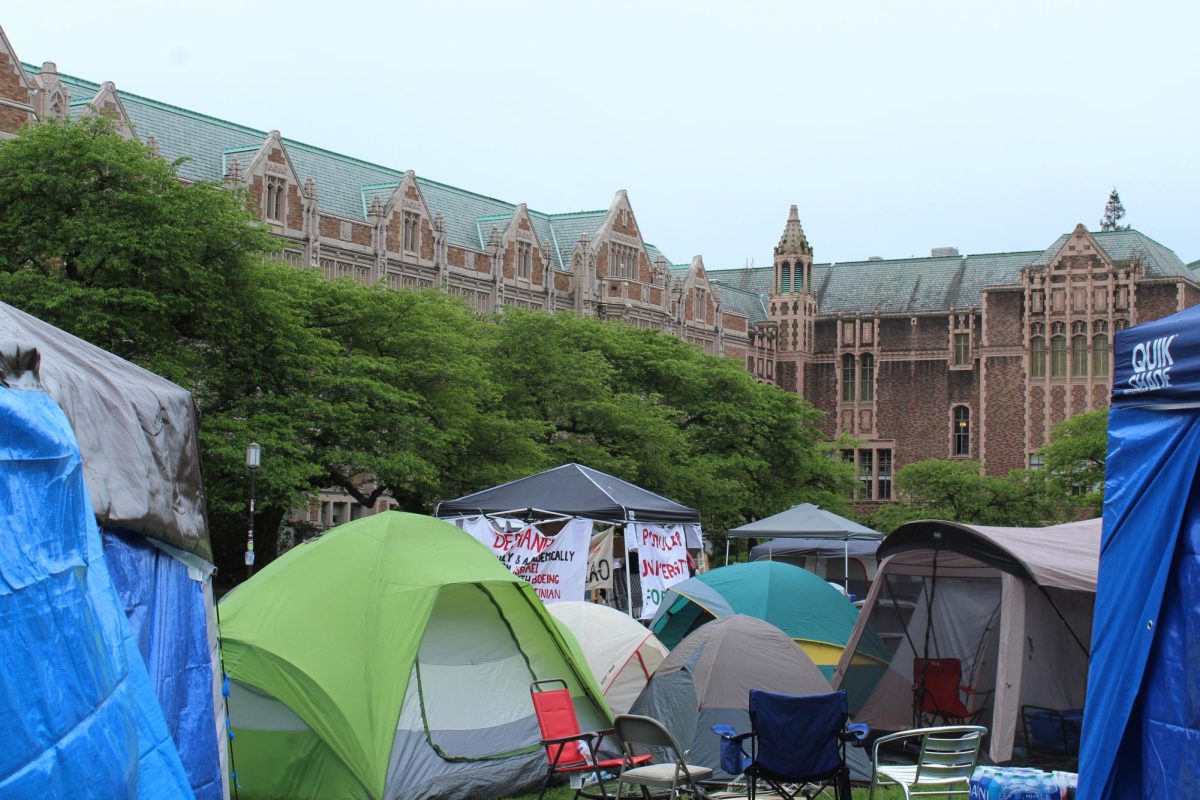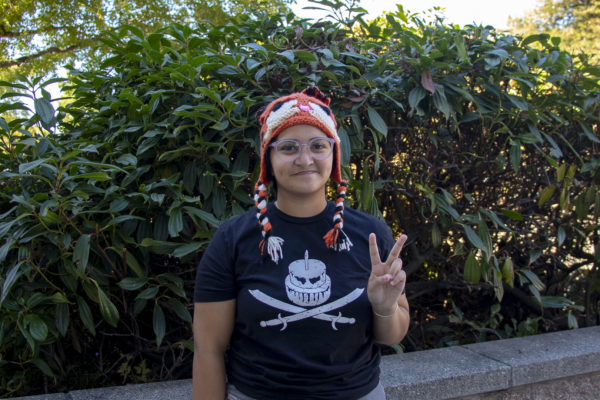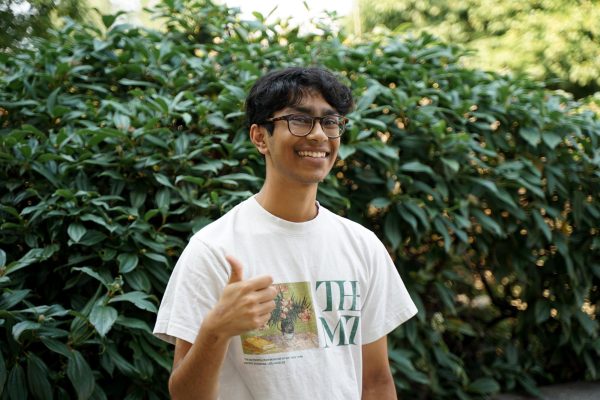Growing up around the federal legalization of gay marriage in response to massive protest in 2015 and widespread Black Lives Matter demonstrations in 2020, this generation of youth has learned an effective response to social justice issues: resistance. Beginning in late October 2023 and escalating in April 2024, there has been a wave of protests on college campuses, where students are calling for their institutions to divest from Israeli-backed corporations. These protests have generated debate among rising college students regarding their effectiveness.
Senior Mendel Petrus (he/him) will attend the University of Hawaii Manoa, where students held campus protests in April. He said that since the warzone is across the globe from the protests, they are ineffective in creating actual change. He also cites his personal connection to another international conflict as reason for his opposition.
“My family is from Ukraine; there’s a crisis there right now,” Petrus said. “But as a Ukrainian, and other Ukrainians that I know, we would never go on campus and just start (protesting). If it’s peaceful, yeah, but I don’t see the point in it. Here, the war isn’t going to change.”
Carnegie Mellon-bound senior Abhinav Akkiraju (he/him) has a different outlook on the demonstrations. Despite his future university’s lack of protests, Akkiraju said the protests instill optimism in him, and that he would participate in nearby campus protests.
“The protests give me a sense of empowerment, because all these college students are out there risking their whole education, their diplomas, everything,” Akkiraju said. “It makes me feel confident that future issues can be diverted or fixed, just based off the fact that all these students are willing to give up so much in order to express their opinions.”
One of the first universities to have an encampment, Columbia University has also given over 30 protesting students interim suspensions, according to Columbia University Apartheid Divest. Many other academic institutions such as George Washington University and Princeton University have taken similar action. Akkiraju said he commends the students who have received disciplinary action, and he attributes the prominence of discussion about the Israel-Hamas war to the demonstrations.
“Now it’s picked up so much publicity, so the Israel-Palestine conflict is now fully out there. Everyone knows about them. It’s clear that these protests are actually bringing awareness to the situation,” Akkiraju said.
Petrus said that sending physical aid is much more effective. He also said that students who are passionate about global issues should use more practical methods of intervention.
“I think the most you can do as a student is volunteer, sending help to whatever country you want to support,” Petrus said. “My family, we send clothes, or we send food (to Ukraine). If you really are deep into it, you can go on a plane and go there and rescue people. Other than that, I don’t think protesting or posting on your (Instagram) story is gonna do a lot, besides spread awareness.”
Despite widespread protest, little progress towards divestment has been actually achieved. Junior Matthew Epshtein (he/him) doesn’t think the protests will affect either the Israeli or the United States government, but he does believe they have impacted American political culture. As someone who personally disagrees with the opinion of the protesters, he also said that he has noticed a shortage of constructive discussion between opposing sides, likely due to misinformation.
“I think it’s another instance of mass protests in the U.S. fueled by social media,” Epshtein said. “If anything, it’s probably more indicative of a larger trend that will be prevalent both on the left and the right, where you have people who are broadly informed by social media turning out to these large-scale protests, encouraging some kind of disruption and a lack of engagement.”
Some students at these universities have said that the protests foster an environment of anti-semitism. In response, pro-Palestinian organizations such as the Jewish Voice, for Peace have expressed support for the protests and denounced Zionism, or a movement for the establishment and protection of a Jewish state in the land of Israel, which according to Zionism is the historic land of the Jewish people. Epshtein said despite this support from some Jewish people, antisemitism could still very well be taking place.
“It seems like at these protests, a lot of the organizers are using the Jewish students as a way to say ‘We’re not antisemitic,’” Epshtein said. “And that might not necessarily be true. They might be antisemitic, (but) I doubt it. I think they have more specific hatred towards Zionism. I do think that just having Jewish students at the protest doesn’t mean you can’t be antisemitic.”
On April 30, dozens of pro-Palestinian demonstrators were arrested at Columbia University for allegedly vandalizing and blockading the campus. The universities’ president requested police presence through mid-May. Akkiraju said he didn’t approve of the method Columbia used to disperse the protests and also said how important the freedom to demonstrate peacefully is.
“Because of the police retaliating against the protesters, the protesters started to be unsafe, and then they can no longer voice their opinions,” Akkiraju said. “As these protests get louder and louder, it’s building awareness for the Palestine-Israel conflict, which is a good thing because people need to know about what’s happening out there. So with these police shutting down the protests, it’s starting to silence this issue when really, it needs to be louder.”
Epshtein also emphasized the importance of first amendment rights. Although, he said that the most important goal for these demonstrations shouldn’t be disruption, but instead creating an environment where students feel able to express their opinions without fear of repercussions or violence.
“It’s a complicated topic,” Epshtein said. “I have my position and somebody else might have a completely opposite position, but I would still very much like to be able to discuss that with them in a manner that’s respectful and in a manner that engages with the substance of the issues rather than touching on semantics.”











